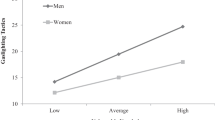Abstract
Intimacy and sexuality can make vital contributions to quality of life but may become complicated or problematic for stroke survivors and their partners/spouses. Several studies have focused on survivor feelings and perceptions of post-stroke sexuality, but partners are generally neglected. The purpose of this project is to identify partner perspectives and experiences related to intimacy and sexuality following a stroke. Nine participants were interviewed in person or by phone about relationship changes and their information, supports or resources regarding intimacy and sexuality. Transcripts were analyzed using techniques of thematic analysis. Four themes were identified: (1) maintaining closeness and togetherness, (2) redefining sexuality and intimacy after stroke, (3) coping with lack of resources, and (4) wishing health professionals would discuss these topics. Results of this study indicated that partners are very concerned about intimacy and sexuality but feel unprepared to address these personal concerns post-stroke. Clinicians can open the lines of communication about sexuality and intimacy to support couples’ quality of life. Further resources and training as well as policies need to be developed to address sexuality and intimacy effectively with stroke survivors and their partners.
Similar content being viewed by others
References
Guo, M., Bosnyak, S., Bontempo, T., Enns, A., Fourie, C., Ismail, F., Lo, A.: Let’s talk about sex!-improving sexual health for patients in stroke rehabilitation. BMJ Qual. Improv. Rep. 4(1), 1–4 (2015)
Harris, S.M., Adams, M.S., Zubatsky, M., White, M.: A caregiver perspective of how Alzheimer’s disease and related disorders affect couple intimacy. Aging Ment. Health 15(8), 950–960 (2011)
Kitzmuller, G., Ervik, B.: Female spouses’ perceptions of the sexual relationship with stroke-affected partners. Sex. Disabil. 33(4), 499–512 (2015)
Korpelainen, J.T., Nieminen, P., Myllylä, V.V.: Sexual functioning among stroke patients and their spouses. Stroke 30(4), 715–719 (1999)
Mellor, R.M., Greenfield, S.M., Dowswell, G., Sheppard, J.P., Quinn, T., McManus, R.J.: Health care professionals’ views on discussing sexual wellbeing with patients who have had a stroke: a qualitative study. PLoS ONE 8(10), e78802 (2013)
Rosenbaum, T., Vadas, D., Kalichman, L.: Sexual function in post-stroke patients: considerations for rehabilitation. J. Sex. Med. 11(1), 15–21 (2014)
Stein, J., Hillinger, M., Clancy, C., Bishop, L.: Sexuality after stroke: patient counseling preferences. Disabil. Rehabil. 35(21), 1842–1847 (2013)
Seymour, L.M., Wolf, T.J.: Participation changes in sexual functioning after mild stroke. OTJR: Occup. Particip. Health 34(2), 72–80 (2014)
Richards, A., Dean, R., Burgess, G.H., Caird, H.: Sexuality after stroke: an exploration of current professional approaches, barriers to providing support and future directions. Disabil. Rehab. 38(15), 1471–1482 (2015)
Braun, V., Clarke, V.: Using thematic analysis in psychology. Qual. Res. Psychol. 3(2), 77–101 (2006)
Annon, J.: The PLISSIT model: a proposed conceptual scheme for the behavioural treatment of sexual problems. J. Sex Educ. Ther. 2(1), 1–15 (1976)
Farnam, F., Janghorbani, M., Raisi, F., Merghati-Khoei, E.: Compare the effectiveness of PLISSIT and sexual health models on Women’s sexual problems in Tehran, Iran: a randomized controlled trial. J. Sex. Med. 11(11), 2679–2689 (2014)
Taylor, B., Davis, S.: The extended PLISSIT model for addressing the sexual wellbeing of individuals with an acquired disability or chronic illness. Sex. Disabil. 25(3), 135–139 (2007)
Acknowledgements
We are grateful to Katelyn Kiermaier, MSOT, OTR/L, Beth Lambert, MSOT, OTR/L, and Elizabeth Pesch, MSOT, OTR/L for their contributions to this research project. We thank Michelle Donelly, Ph.D., for her insights and encouragement on this paper. We especially acknowledge the participants who shared their perspectives.
Author information
Authors and Affiliations
Corresponding author
Ethics declarations
Conflict of interest
The authors declare that they have no conflict of interests.
Ethical Approval
All procedures performed in studies involving human participants were in accordance with the ethical standards of the institutional and/or national research committee and with the 1964 Helsinki declaration and its later amendments or comparable ethical standards.
Rights and permissions
About this article
Cite this article
Kniepmann, K., Kerr, S. Sexuality and Intimacy Following Stroke: Perspectives of Partners. Sex Disabil 36, 219–230 (2018). https://doi.org/10.1007/s11195-018-9531-2
Published:
Issue Date:
DOI: https://doi.org/10.1007/s11195-018-9531-2




